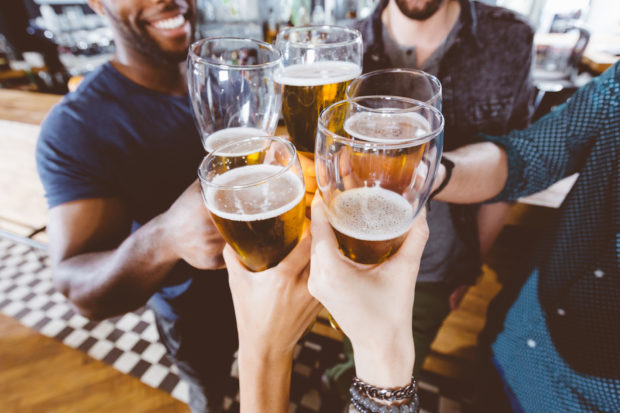If you like a pint of India pale ale you might be a sensation-seeking risk taker

Whether you prefer a lager or a pale ale could say something about your personality according to new research. Image: izusek/IStock.com via AFP Relaxnews
A new United States study has found that if you prefer a pint of India pale ale (IPA) to lager, then it could indicate that you like taking risks and seeking out new sensations.
Carried out by sensory researchers at Penn State University, the new study looked at 109 beer consumers, who were a mix of both men and women and mainly in their 30s, and asked them to complete a blind taste test in the lab of various drinks.
The participants were asked to taste two pale ales, one which was strongly bitter and one that was moderately bitter, a lager, which had low bitterness, and two bitter solutions, one which had quinine, which is the compound that makes tonic water bitter, and another which had the hops extract Tetralone.
The participants were asked to rate how intense they found the flavor of each drink and how much they liked it, as well as complete personality questionnaires.
The findings, published in Food Quality and Preference, showed that the participants who perceived the bitter taste to be more intense and who liked the bitter quinine solution were also more likely to prefer drinking the bitter pale ales than the lager beers, and drank them more often. Moreover, the pale ale drinkers were also more likely to score highly on the Seeking Sensations questionnaire, which suggested that they like to seek out unique sensations and are more prone to risk-taking.
“The interaction revealed liking of the pale ale increased with sensation-seeking but only if quinine bitterness was also high,” explained lead researcher Molly Higgins. “Intake models showed increased odds of frequent pale-ale intake with greater quinine bitterness and lower liking for lager beer. These data suggest liking and intake of pale ales is positively related to sensation seeking and bitter taste perception.”
Researcher John Hayes also added that he was surprised by the finding, as previous research has suggested that greater perceived bitterness actually leads to people eating and drinking less bitter foods and drinks.
“Traditionally, most researchers find that people who experience bitterness more intensely avoid bitter food or drink — so with heightened bitterness, they like it less, and therefore consume it less,” he said. “But here, we find that people who seek higher sensations and are more risk-taking, they like bitter beer such as India pale ales, if they also have greater bitter taste perception.”
The study is not the first to find a link between our personality traits and which foods we like. Hayes notes his research group in the College of Agricultural Sciences found that sensation-seeking, risk-taking personality traits were also strongly linked to a preference for spicy foods, a finding in line with Mexican and Italian studies, while an Austrian study found that participants who liked bitter foods were more likely to show malevolent, psychopathic and narcissistic personality traits, although the researchers noted that the findings are still tentative. CL
RELATED STORIES:
‘Beer goggles’ really do exist — study
Japanese study links even light alcohol consumption with a higher risk of cancer